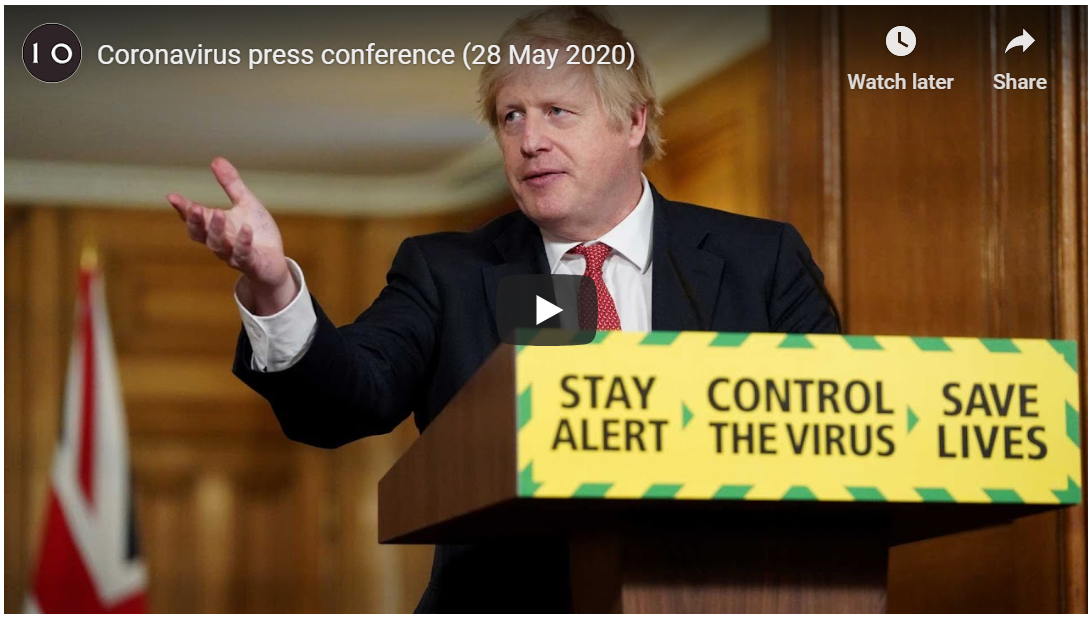Someone working on the budget process in a developing country contacted me with the following question:
I noticed in your most recent post you mention that you are a budget wonk. I am currently working in [the budget section of an African government] as an ODI Fellow … But there is no formal training and no-one who can recommend useful reading on budgeting processes. I wondered if you had a reading list on budgeting that might be helpful? This could be anything from basics to more advanced material.
There is actually a lot of material out there, but it isn’t really all brought together in one place very well. Here is what I suggested:
- the World Bank’s Public Expenditure Management Handbook is a good starting point, but it is a strangely apolitical document that does not do justice to the politics of the budget process.
- That can be remedied with Legislatures and the Budget Process: the myth of fiscal control by Joachim Wehner.
- Allen Schick’s paper, “Why most developing countries should not try New Zealand’s Reforms” (updated link and corrected title) is a classic which should guide us when we think about the budget process in developing countries.
But perhaps I’m out of date. What do you think an ODI fellow working on the budget process in a developing country should read?
(And is it OK that we are sending ODI Fellows to developing countries to work on the budget process without some formal training, or at least a reading list?)



20 Comments
Peter Bofin · April 27, 2011 at 4:45 pm
Thanks for this – very useful. The link on the Schick paper on the IDEAS page wasn’t doing it for me, but it is also available on the GSDRC site from http://www.gsdrc.org/go/display&type=Document&id=2878
Owen Barder · April 27, 2011 at 4:58 pm
@Peter – thanks. I’ve now fixed the link.
Lee · April 27, 2011 at 4:47 pm
I tried to do lots of that kind of reading when I started, but I’m not sure how useful abstract/theoretical reading and training really is. The really useful stuff is the specific local details, which of course are often not written down. Better facilitation of sharing between ODI’s would be helpful but possibly difficult when this is all internal government documents and processes.
Owen Barder · April 27, 2011 at 4:59 pm
@Lee – You are right that local details are very important. But all three suggestions here are quite practical rather than abstract, though; I learned quite a lot from them.
Karin Christiansen · April 27, 2011 at 6:13 pm
I’d also suggest getting in touch with the Centre for Public Expenditure at ODI – try http://www.odi.org.uk/work/programmes/aid-public-expenditure/topics/details.asp?id=66&title=reforming-public-finance-management
Many ex-ODI Fellows who have had the same experience as you who will also be able to empathise and give practical and helpful advice on specific challenges as they come up.
Doug Hadden · April 27, 2011 at 6:30 pm
There have been some good IMF Technical Notes
A Basic Model of Performance-Based Budgeting
Marc Robinson and Duncan Last
http://www.eastafritac.org/images/uploads/documents_storage/Performance_Based-Budgeting_Model.pdf
Budget Classification
Prepared by Davina Jacobs, Jean-Luc Hélis, and Dominique Bouley
http://www.imf.org/external/pubs/ft/tnm/2009/tnm0906.pdf
Some recent OECD documents that could be helpful:
INTEGRATING PUBLIC ENVIRONMENTAL EXPENDITURE WITHIN MUTI-YEAR BUDGETARY FRAMEWORKS Nelly Petkova
http://www.oecd.org/dataoecd/60/6/42898831.pdf
SEQUENCING AND PACING OF PERFORMANCE BUDGETING REFORMS:
Summary of the 5th annual meeting of the SBO Network on Performance and Results 27-28 October 2008
http://www.oecd.org/dataoecd/21/14/42188165.pdf
Performance Budgeting:
A Users’ Guid
http://www.oecd.org/dataoecd/32/0/40357919.pdf
There is a set of PowerPoint slides from a Queens University course on Canadian public financial management that could also be helpful:
http://post.queensu.ca/~grahama/FMTEXT/6.BUDGETS.ppt
Peter F. Christensen · April 27, 2011 at 6:54 pm
I think the correct title of Allen Schick’s paper is “Why most developing countries should NOT try New Zealand’s Reforms”(my capitalisation). Perhaps NOT a trivial typo in terms of meaning. I recall a rather old ODI briefing paper by Killick: ‘The politics of Ghana’s budgetary system’ which had a strong emphasis on political aspects, something still missing in much of the current analysis (e.g. PEFA). It can be found at http://www.odi.org.uk/resources/download/1323.pdf A more elaborated analysis is found in Killick’s (gated)’What drives change in Ghana’ in Aryeetey and Kanbur (editors), The Economy of Ghana: Analytical Perspectives on Stability, Growth and Poverty (2008). While both are Ghana specific in their evidence base, I think they still have wider applicability in terms of offering insights into the real politics of governments’ budgets and expenditures.
Owen Barder · April 27, 2011 at 7:12 pm
Thanks Peter. I can’t believe I made that typo in The title of Allen’s paper!
inthemachine · April 27, 2011 at 9:44 pm
The International Budget Partnership has an entire library at http://bit.ly/kScQLA . It including general overivew docs, as well as some country specific research. The fact that they partner directly with in-country NGOs to do buget research means they are able to get quite in the weeds.
I don’t know if it is great training material, but it is a teriffic resoruce for anyone looking to see what can be said about budget processes in countries at all stages of transition and economic development.
Owen Barder · April 28, 2011 at 12:42 am
Someone at AusAid has recommended a free, 15-20 hour online course from Danida.
Matt Morris · April 28, 2011 at 1:21 am
You are right to put the Public Expenditure Management Handbook at top of the list. As an ODI Fellow in PNG I swore by it and always encourage ODI Fellows to read it. Malcolm Holmes, one of the authors of the Handbook, is excellent value (and in addition to consulting is an Associate at the Development Policy Centre). I’d add to your list a quick search for the country PEFA report and latest IMF Article IV to put budget issues into local context. Beyond that, as Karin and Peter point out, ODI have a wealth of research and analysis on budgets, including their recent evaluation of donor support for PFM.
Paolo · April 28, 2011 at 6:46 am
There’s actually a wealth of material to draw on. If a document can be uploaded here I can share the reading list for a short course Joachim Wehner and I are putting together on PFM issues, otherwise the ODI Fellow in question can email me directly at [email protected].
ODI/CAPE, IBP and IMF are all very good sources.
The IMF PFM blog usually has interesting posts.
There’s lots of material on this World Bank page, too: http://go.worldbank.org/RVZ7W2YGR0.
But I would not at all discount the value of more theoretical academic work. Some of it sheds light on very important issues.
Owen Barder · April 28, 2011 at 11:26 am
Thanks Paolo. I think the question was are they key things to read, rather than a long reading list. What are the key texts that everyone should read?
Lee · April 28, 2011 at 1:55 pm
Dear Country Office head: here’s the thing: unlike most technical assistance, ODI fellows are typically completely demand led. We know this because host governments pay them a local salary. If the government didn’t want a young smart motivated but inexperienced fellow they wouldn’t pay for one. There are fairly regular independent reviews of the program, and the last one came out very positively.
Joachim · April 28, 2011 at 4:37 pm
Glad to have made your list, Owen! I think that a good source of information is the OECD Journal on Budgeting (with free online access): http://www.oecd.org/gov/budget/journal. Admittedly, the material has an OECD focus, but there are also some very fine pieces that are broadly relevant, and some contributions with a developing or transition country focus. I also endorse Paolo’s point about not being too dismissive about theory, especially when it is well-connected to practical implications, otherwise it is hard to understand why organisations such as IMF/World Bank push certain kinds of institutional reforms.
Malcolm Holmes · May 3, 2011 at 4:48 am
Owen,
It was, of course, nice to see the Handbook featuring but it is a bit of an indictment that there is not something more recent (including a revised version of the Handbook which I would have been happy to start on as early as 2000). It is interesting that you refer to the Handbook as apolitical as I thought I was making a decisive break with the past technical focus to budgeting at the Bank and the Fund. Not only was I attempting to emphasize the centrality of budget formulation but also to go the next step and highlight the importance of an effective forum at the centre of government and associated institutional mechanisms that facilitate the making and enforcement of strategic resource allocation decisions (p34). There clearly should have been more explicit reference to political decision making and a revised version would have had something to say about political economy.
In terms of nuts and bolts, there is a great deal of useful material in the ADBs “Managing Government Expenditure” (1999) and the OECD SIGMA “Managing Public Expenditure” (2001). Karin has mentioned CAPE material – I recall an “Economists Manual on Aid and Public Expenditure Management” from 2000 (have not checked whether this has been updated) – and there is relevant material in Guidelines for DFID on “Understaning and reforming public expenditure management” (2001). Another document from the late 90s/early 2000s is the IMFs “Guidelines for Public Expenditure Management”.
This clustering of handbooks around the late 90s/early 2000s, with few apparent examples since then, reflects at least in part the subsequent triumph of PFM over PEM. I will not get started here on this development.
(I don’t suppose you will be passing through London during the period 20-26 May as I will be there then and it would be good to catch up)
Florence and Rizzo · May 3, 2011 at 7:09 am
While some reading literature on the budget provides useful insights into the principles that should be employed in any budgeting process, the success of any external assistance in a budget institution (whether it be an ODI or a 800 USD-per-day consultant) ultimately depends on the existing country system. Also learning-by-doing is surely what the budget process is about – the details, the politics and the administration. While reading through a 200-page World Bank guide may be interesting, the added value comes from the ODI’s ability to assess the status-quo quickly and to employ a broad range of tools. While the ODI may be weak on technical economic analysis of budgets compared to a 15-years of experience consultant, given data constraints and the capacity of many of the ministries, sometimes clearly presenting simple calculations and the spreadsheets is what is valued.
Ultimately, the nature of the ODI is to work within and supplement the country system. The ODI who requested the information should be commended for drawing in advice from experts, but no doubt they are real value for money for their ministry.
I challenge the ‘head of country office’ to find a more cost-effective use of aid money, in terms of technical assistance, than a program that allows the ministry to pay for services that they value. This is surely something accountable and transparent, relating to the Paris Declaration which the ‘head of country office’ supposedly signed up to.
Owen Barder · April 28, 2011 at 11:41 am
The head of a country office of a large aid agency has sent me this comment but asked to remain anonymous:
n00bs « Aid Thoughts · April 28, 2011 at 10:20 am
[…] Barder takes a question from an ODI Fellow looking for some more detailed information on budgeting processes and answers […]
n00bs « Aid Thoughts · April 28, 2011 at 10:20 am
[…] Barder takes a question from an ODI Fellow looking for some more detailed information on budgeting processes and answers […]
Comments are closed.